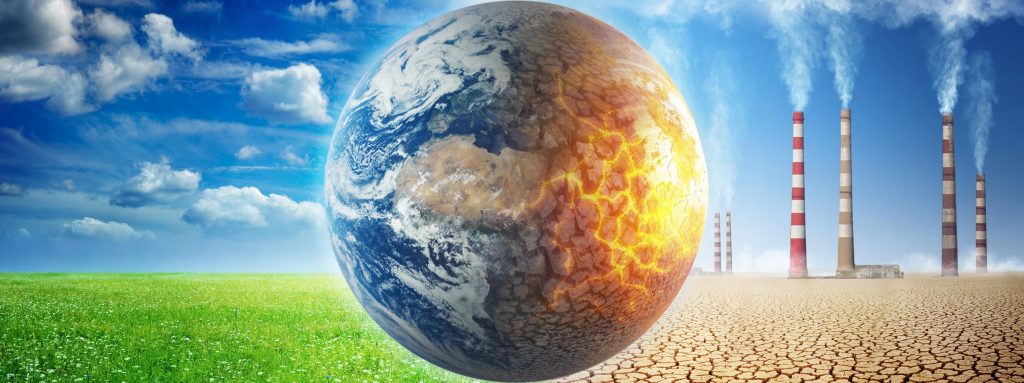
World Earth Day: sustainable heating is smart
On World Earth Day, it is understandable that the main topics are eco-friendliness and resource rationalization, especially if we consider the difficult times we are experiencing.
However, it is also true that today technology can have a positive impact on the environment, starting from those who control modern heating systems.
What is the World Earth Day and what are the risk factors for the Planet's health energy-wise
Earth Day is the biggest environmental event on the Planet, a time when all the citizens of the world reunite to celebrate Earth and promote its protection.
The United Nations celebrate Earth Day every year (one month and two days after the spring equinox) on 22 April.
We are talking about an event that involves up to one billion people in over 193 countries worldwide, every single year, celebrated for the first time in 1970, following the draft by American activist John McConnell, during the UNESCO conference in San Francisco.
On this day, all the big topics concerning the issues that affect our Planet are covered, such as air, water and ground pollution, ecosystem destruction - with thousands of plants and animals disappearing - and the depletion of non-renewable resources.
At the same time, alternative measures are promoted, such as material recycling, conservation of natural resources such as petrol and fossil gases, the prohibition to use dangerous chemicals, putting an end to the destruction of essential habitats, such as wet forests, and protecting endangered species.
In over 42 years of history, the importance of this day has exponentially grown, with the affirmation of a "Green Generation" much more attentive to these issues.
Protecting the Earth means protecting human health.
Indeed, WHO researchers have estimated that 1 death out of 4 globally (and 12-18% of all deaths in the 53 countries of the European Union) is determined by environmental risk factors linked to the place where we live and work.
What's more, environmental risk factors promote the insurgence of over 100 categories of diseases and health issues.
Among these, air pollution ranks first in Europe and is linked to hearth diseases, strokes, pulmonary diseases and lung cancer.
It is estimated that exposure to polluted air determines over 400,000 premature deaths every year in the EU.
This pollution is mainly due to the constant input of fossil fuels into the atmosphere, resulting from industrial production and also - especially in Northern countries - from the use of heating systems in common residential units.
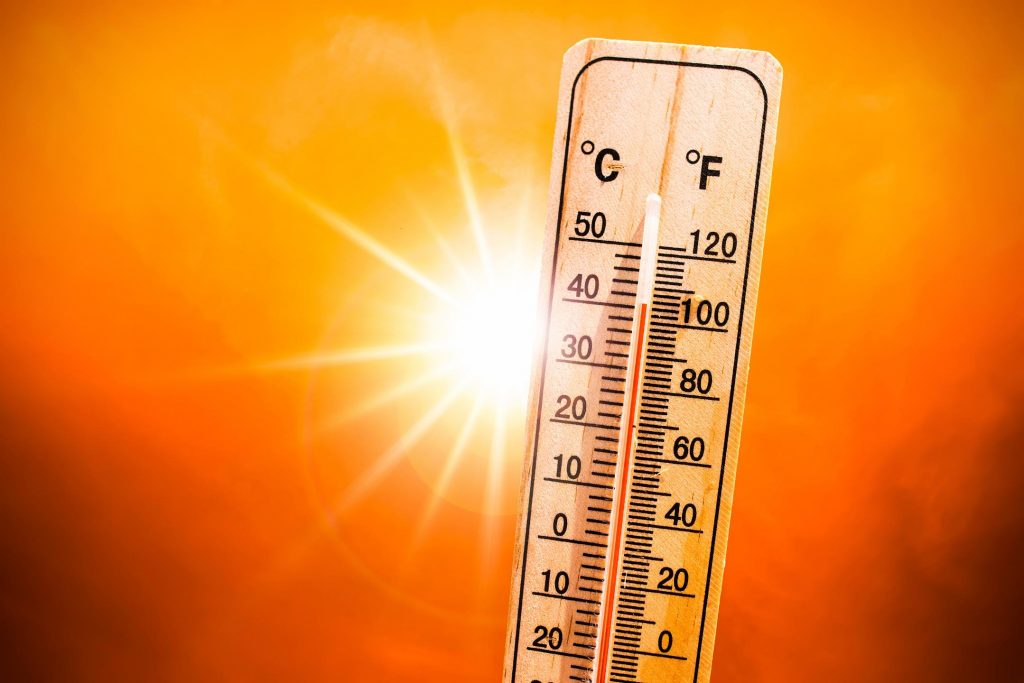
Why heating is a relevant factor for our Planet's well-being
Air pollution, apart from contributing toward global warming, causes our Planet's climate change, which, differently from what happened in other eras of human history, does not occur naturally.
With the Paris Agreement in 2014, almost all the Countries in the world (195) decided to implement a plan to tackle global warming. The main points of the agreement include:
- Finding a balance between greenhouse gas emissions and absorptions, starting from 2050, and keeping the increase of global temperature well below 2°C;
- Analysing the results obtained every five years;
Funding climate actions for developing Countries with 100 billion dollars per year, until 2020, with the commitment of continuing this funding even also 2020.
In addition, the Paris Agreement also suggests that global warming can be strongly limited by applying effective energy policies.
The report clarifies that an energy transition is urgently required, and that renewable energies with low carbon emissions, energy efficiency and electrification are the pillars of such transition.
Technologies are already available, applicable on a large scale and competitive in terms of costs.
The energy issue is closely related to environmental protection, because, in order to generate energy, we consume great quantities of environmental resources; moreover, the most used energy sources are fossil fuels, such as petrol and coal, whose combustion is highly polluting and responsible for the increased greenhouse effect, and the consequent climate changes.
A good deal of the energy produced and consumed ends up in our houses, where it is used to heat the water and the rooms, provide electricity and power lamp bulbs and appliances.
Domestic utilities, such as heating, are becoming more and more consistent, and contribute to the Planet's pollution in a non-negligible way.
Starting from domestic consumption, each one of us can adopt virtuous behaviours, capable of making our homes less polluting and spend less.
For instance, a good maintenance of window and door fixtures and of the heating system significantly reduces consumption and waste. However, even technology can help, with devices that can automatically adjust the temperature in our home, thus avoiding useless energy dispersions.
Why a smart heating system is sustainable and what are its functions that promote sustainability
IRSAP NOW smart heating system can help you reduce the energy consumption and protect the Planet for your well-being and that of future generations.
We are talking about the innovative system to transform traditional heating into a smart, wireless, and multi-zone system that can be customized for any kind of residential unit.
Indeed, with the Smart Scheduling function, the system learns from your habits and automatically adapts, ensuring the greatest comfort, through a simple planning of the room temperature to adapt to your day-to-day needs.
This way, the system will limit energy waste and help you save on your bill and protect your health, by ensuring a constant temperature fit for your needs.
Moreover, the Green Mode is especially useful in this sense, as it anticipates the system switch-off with respect to the time set, thus reducing consumption and emissions.
IRSAP NOW smart heating system provides accurate and updated data on consumption, which can be read at any time through the app, available on Android and iOS and compatible with Alexa and Google Home vocal assistants.
Also, IRSAP NOW Green Leaf savings indicator will guide you in optimizing the heating system, by indicating the temperature that will let you have the right level of comfort inside every room, without forgetting sustainability.
And with the smart thermostat you can set and measure the temperature of every room in which it is installed, in an accurate manner.
Thanks to its advanced functions, it can also detect the presence of toxic substances such as CO2, Carbon Monoxide, Ethanol or Toluene in the air, and send the data to the app!
IRSAP NOW smart thermovalves can detect when a window is open.
When this happens, they automatically adapt the temperature of the heater on which they are installed to further reduce your consumption, thus avoiding useless and polluting energy waste.
Other articles
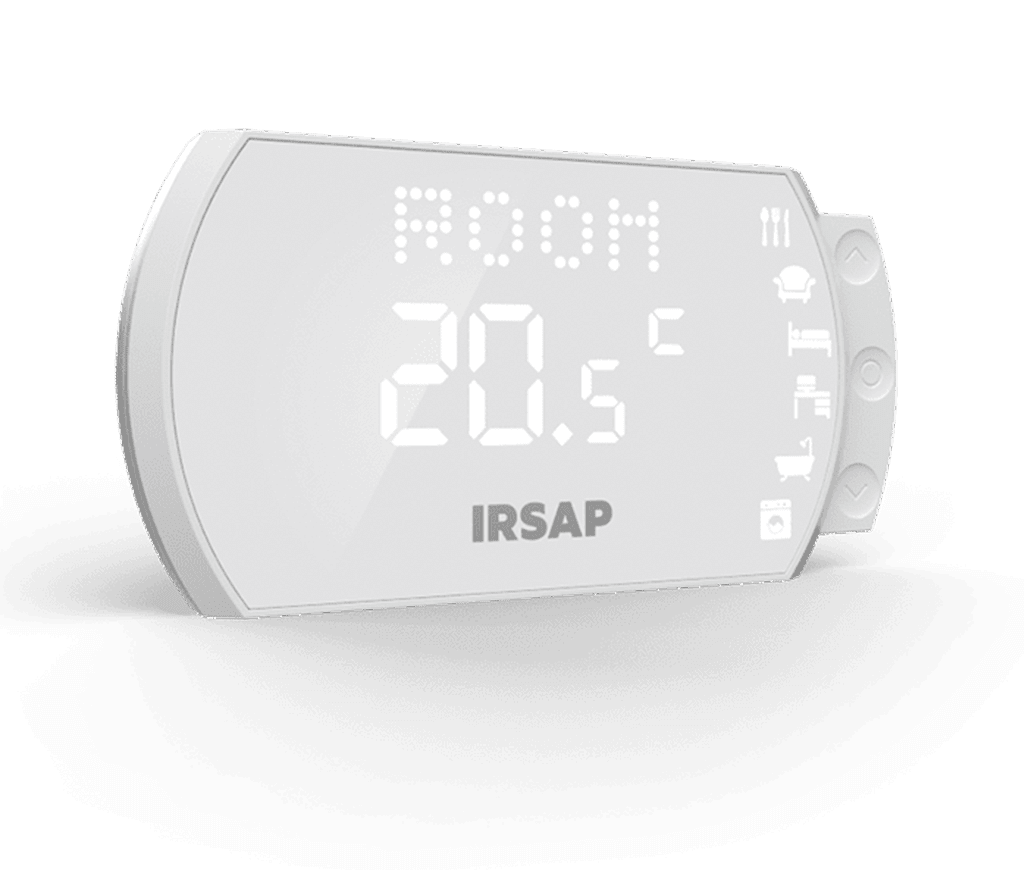
Smart Thermostat
The Smart Thermostat allows you to precisely set and measure the temperature of the room in which it is installed. Thanks to its advanced functionalities it also allows you to control humidity and air quality.
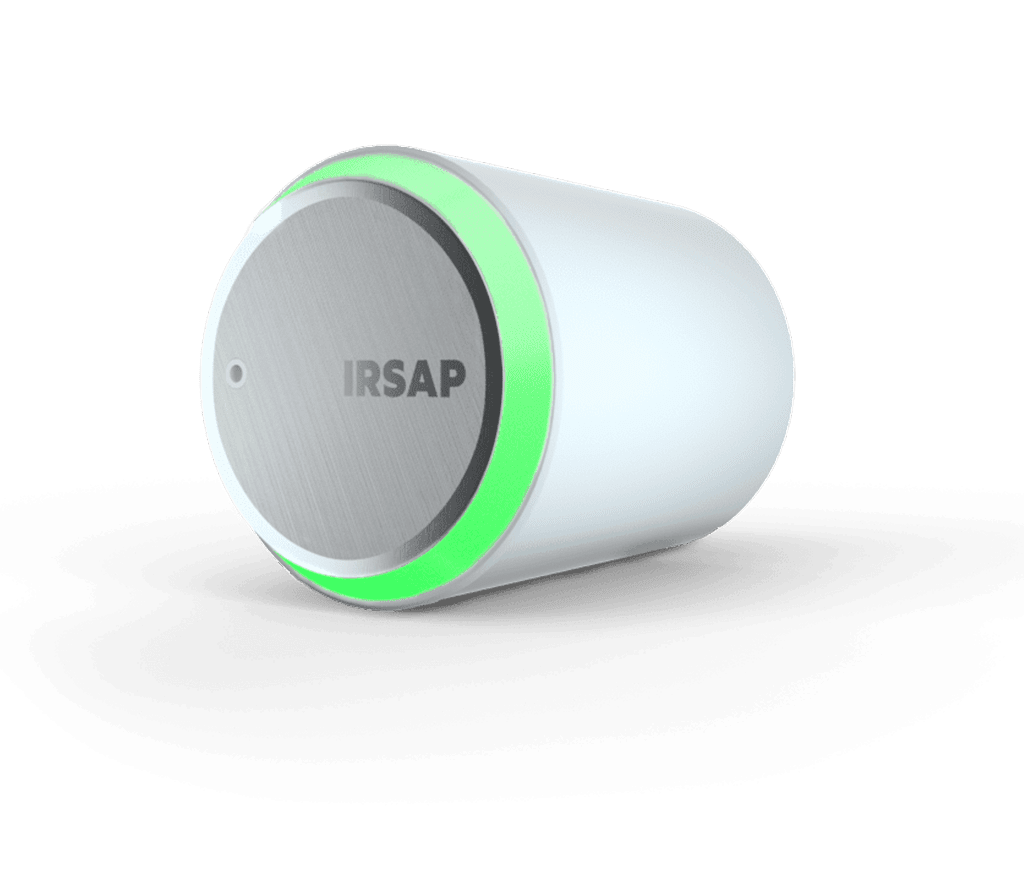
Smart Valve
With IRSAP NOW Smart Valves you control the temperature intelligently from wherever and whenver you want via smartphone. Our wireless thermostatic valves are compatible with all radiator brands and leading hydraulic valve manufacturers.
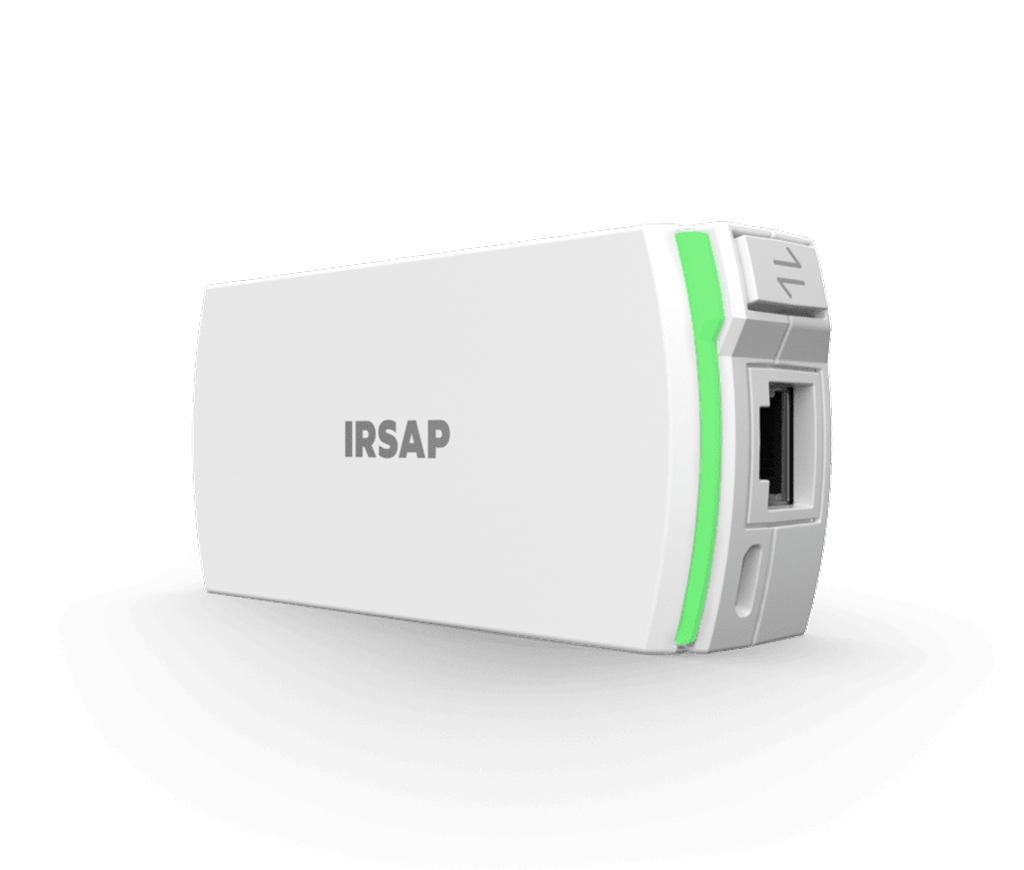
Connection Unit & Repeater
The Connection Unit is connected to your home router and is indispensable for controlling all the other devices in the system from wherever and whenever you want directly from your smartphone.







